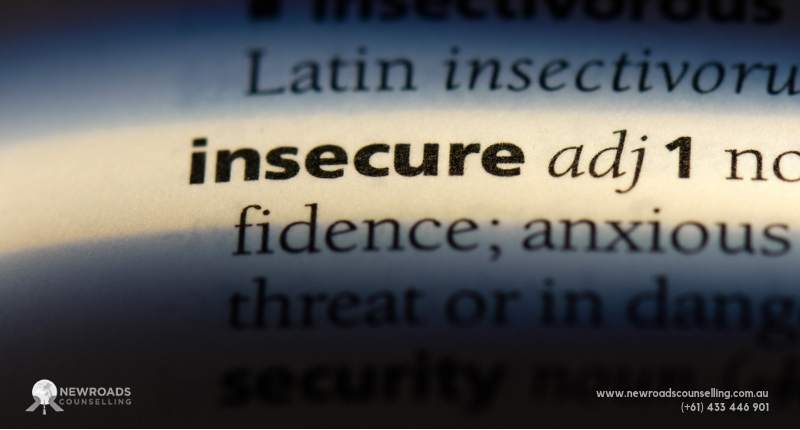There are many reasons that can cause someone to feel insecure. Insecurity prominently stems from your upbringing, where as children you feel unloved, or rejected, or criticised by your parents or primary caregiver. This experience will impact on children in their later years and into adulthood. Trauma from abuse can often lead to insecurity and distorted self-belief, such as “It must be my fault”, “I’m asking for it”, ” If only I did what was asked”, ” There must be something wrong with me”, “I’m ugly”, etc. Failures from achieving things can add to the feelings of insecurity.
WHAT IS THE IMPACT OF BEING INSECURE
Even though insecure people will rely on other people’s opinions or situations to boost their self-esteem, they often struggle to trust others because they cannot trust themselves. They tend to see and view the world from the negative side and they can become very critical of themselves and others, often projecting their own issues on others. Insecurity impacts people’s work performance, their relationship with their partner, their parenting and their friendships.
HOW INSECURE PEOPLE COPE
Sometimes insecure people deny that they are insecure and try to convince themselves that they are not as bad as others. Therefore, they often look at other people’s shortcomings or judge others to make themselves feel better. Some can appear to be cocky and arrogant or boastful because they feel threatened by others and their achievements. Insecure people can be easily reactive as a defence mechanism in order to protect themselves, or easily get angry to show others that they are wrong. They also have difficulties in recognising their own mistakes.
However, some might behave in the opposite way, being withdrawn, having self-contempt and easily deflecting any compliments given to them.
HOW TO OVERCOME YOUR INSECURITY
1. List what you like about yourself and what you have achieved in your life. Learn how to see yourself from a positive angle as it will help you to accept yourself better and feel good about yourself.
2. List all your strengths and weaknesses with an open mind to help you have a balanced your view of yourself. Tell yourself that there is no one in this world who is perfect. Everyone has their own strengths and weaknesses and it is OK if you’re not like others.
3. Stop comparing yourself with others. Social media, unfortunately, can be a source of jealousy and envy and can increase your insecurity – social media does not always show the reality of a person’s life.
4. Trick versus truth. Be more careful with your brain that will often trick you, as our brain often works faster than what we would like it to. You need to look at what is the truth or reality, e.g. “everyone hates and attacks me”, while there maybe only few people who don’t like you, or “my boss must dislike me”, while he or she might have other issues going on.
5. Love yourself – this means accepting yourself as who you are, including your weaknesses. The more you accept yourself, the more you can accept others.
As insecurity prominently stems from childhood, often people need extra professional help who is the expert to help you overcome your insecurity. If you are not sure whether you need some professional help, you can drop a note in the column below and we are happy to have a chat with you.

